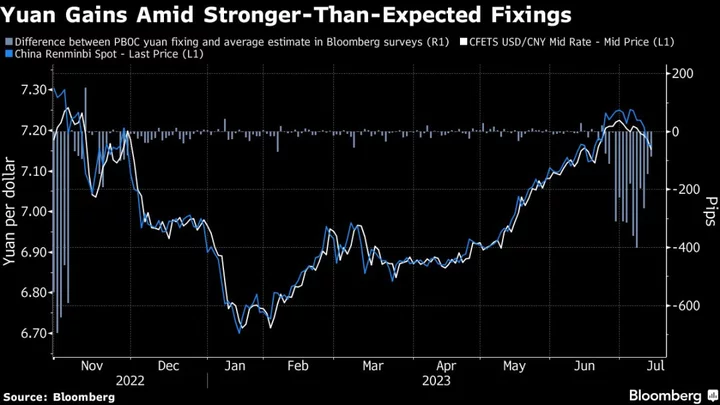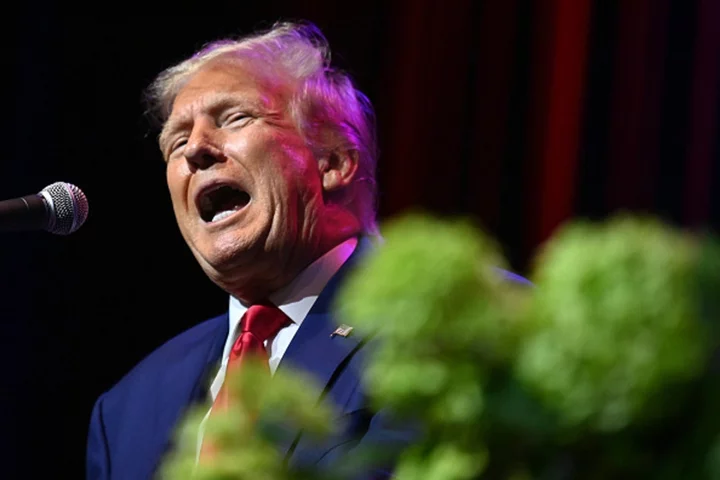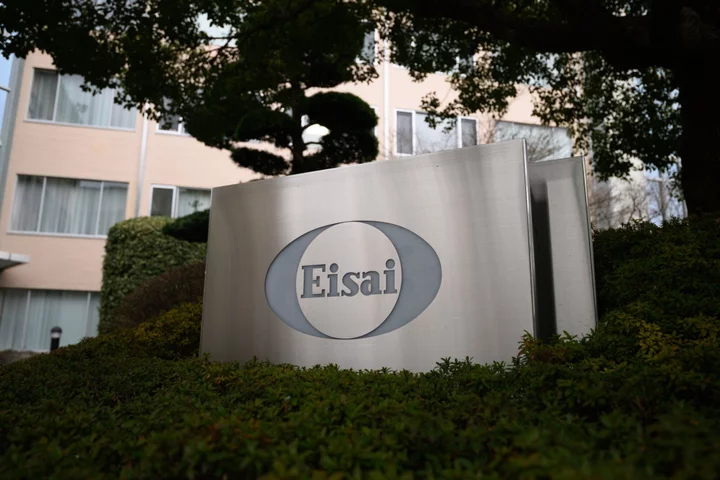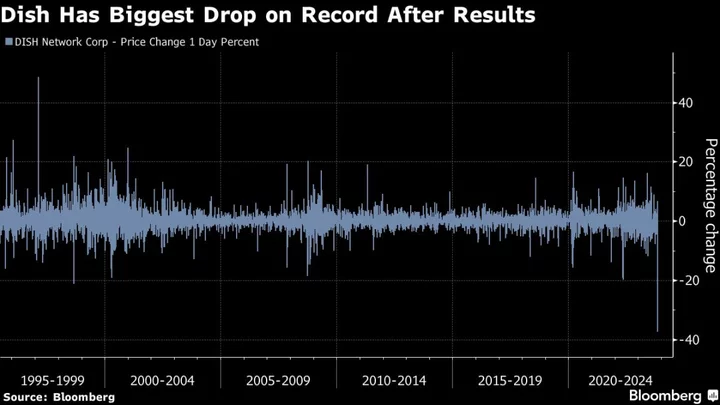The yuan is rebounding from its latest bout of weakness, as China moves to protect economic growth and a historic US monetary tightening campaign nears an end.
The Chinese currency is set to advance for a second straight week, after sinking more than 5% last quarter against the dollar. Forecasters including UBS Group AG, BNP Paribas SA and others predict that the yuan will rally toward 7 per dollar, or strengthen even more, by the end of this year from 7.17 now.
Optimism about the yuan is gaining traction as expectations grow that Beijing won’t tolerate another slump in the world’s second-largest economy, given the rising threat of financial instability and high youth unemployment. Meantime, softening US inflation has raised the prospect for the Federal Reserve to wrap up its rate-hike cycle, pressuring the dollar and easing the risk of capital flight from China.
“The yuan will be more resilient in the second half of the year post the rapid depreciation in the last two months,” said Cary Yeung, head of Greater China debt at Pictet Asset Management. “The negativity has been priced in, and despite recent challenges, we still believe the recovery has legs with support from both monetary and fiscal sides.”
The People’s Bank of China has stepped up efforts to prop up its currency in recent weeks. The central bank used the daily reference exchange rate to guide the yuan stronger and warned against speculation.
“While the the yuan’s exchange rate is mostly decided by the market, we still need to make sure that both the hands of the market and the government can work better together, so we can avoid resolutely avoid big swings,” the central bank’s deputy governor Liu Guoqiang said at a presser Friday.
Authorities also have moved to revive broader confidence in China’s economy and markets, extending support for an ailing property sector and mulling fresh plans to defuse debt risks among local governments. At the same time, signs are growing that Beijing is done with a years-long crackdown on the country’s tech firms, removing a major regulatory overhang for investors.
While a housing crisis persists and exports stay weak, green shoots are emerging in the economy after a series of interest rate cuts, such as the rapid credit expansion last month.
“This round of yuan’s depreciation has reached the late stage as dollar yields are expected to come lower,” said Ju Wang, head of Greater China FX and rates strategy at BNP Paribas. The yuan is expected to stay in a range of 7.1-7.4 per dollar in the current quarter, before strengthening toward 6.95 at the year end, Wang added.
The offshore yuan advanced for a seventh straight session to 7.1321. It’s set for a weekly gain of 1.4%, which is the largest since January. The onshore yuan also rose 0.3%.
The US interest premium will remain, but the impact on the yuan will be contained if China refrains from unduly sizable rate cuts and expectations for a Fed policy pivot grow, said Yifan Hu, chief investment officer for Asia Pacific at UBS Wealth Management. Hu’s team expects the dollar-yuan pair to drop to 6.9 by the year’s end.
In a sign of easing pressure on the yuan, Chinese banks reportedly posted significantly higher foreign-currency sales by clients last month. Meantime, outflows from Chinese domestic bonds has moderated, following a record exodus last year.
The PBOC’s composure when its currency was under siege earlier this year also helped steady nerves. It has so far refrained from deploying more aggressive weapons against short-sellers, such as releasing low-cost dollar liquidity or making bearish bets more expensive.
Reflecting the relative calm, the implied volatility for the dollar-yuan pair has stayed well below levels seen last year and the gap between the offshore and onshore yuan remains narrow.
The dollar-yuan rate has probably peaked after the PBOC signaled discomfort with the pace of currency depreciation via its “light-touch” approach to using the fixing to guide the yuan stronger, said Desmond Soon, head of Asia ex-Japan investment management and a fund manager at Western Asset Management Co.
--With assistance from Chongjing Li and Iris Ouyang.
(Updates with latest PBOC comments in the fifth paragraph and yuan rates in the ninth paragraph)









